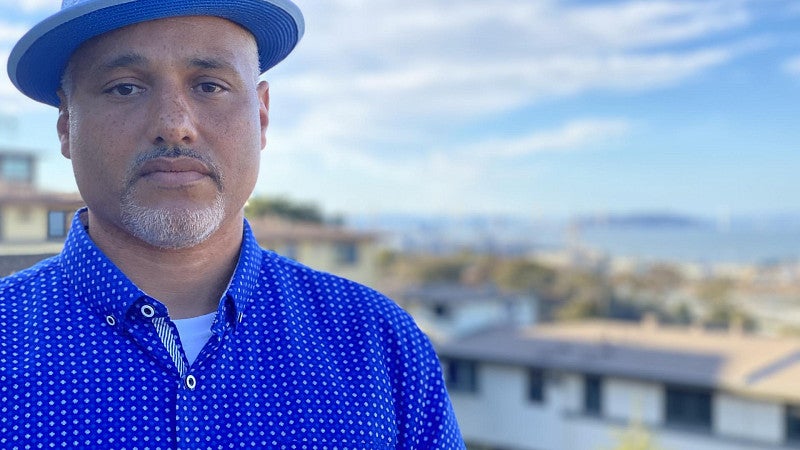February 20, 2022
Story by Lauren Church, CHC Communications
Dr. George Barganier, Clark Honors College’s newest visiting fellow, hated school as a kid.
But instead of turning away from the institution of learning, he decided to take another approach; he wanted to become a part of it.
“I had the romantic idea that I would be able to change things,” said Dr. Barganier, an expert in the Black radical tradition and professor of criminal justice studies at San Francisco State University.
Dr. Barganier’s studies and research have addressed the social, racial, and political power structures that affect curricula and policies in education. This winter, he’s a part of CHC’s Visiting Fellowship in Equity, Justice, and Inclusion program where he shares his expertise in ethnic and decolonial studies with CHC students in his course “Decolonizing Knowledge and Power.”
During his first teaching experience after having graduated from Louisiana’s Grambling State University, Dr. Barganier realized that addressing the issues he’d faced as a student would require reform on a structural level. He earned a master’s degree in curriculum and instruction at the University of Minnesota to learn more about the education system and the aspects he hoped to change.
“During my Ph.D., I started to realize that policy was just a symptom of other issues,” he said. “I started to really think about the issues that confronted individuals like myself — young Black men.”
With this epiphany, he aligned his doctoral research at UC Berkeley to ethnic and decolonial studies of the Black radical tradition and focused on how racial dehumanization seeps into all structures of society — including education. “It’s something that happens in schools, but that’s just a product of larger structures,” he explained.
During his year-long sabbatical from SF State to work on a book project, Dr. Barganier decided to pursue a visiting fellowship at another university to experience another pool of students and faculty. “When I read through the one at CHC, it really drew me in,” he said. “They were really trying to think critically about issues around racial violence.”
This winter, Dr. Barganier is teaching a 400-level colloquium course at CHC entitled “Decolonizing Knowledge and Power” that demonstrates to students how their understanding of inequality is innately affected by their perceptions of race, gender, class, sexuality and other social hierarchies. He explains it as examining “power from the underside of power.” On a deeper level, Dr. Barganier leads students through discussions about who generates certain knowledge and why, exploring how race interacts with structures of domination and resistance.
The visiting CHC fellow explained that the course was inspired by the recent article titled “Psychology as a Counter-Catastrophic Science” by Nelson Maldonado-Torres — one of Dr. Barganier’s former mentors. “It helped me think about some of the work I’m doing in terms of education and thinking about the contributions of the Black radical tradition for not just understanding the life experiences of Black people but how those interventions help us understand power,” he said. “It’s not the study of social problems for the simple fact that we want to learn the disciplines, it’s so we can understand our world and be able to intervene.”
The course’s final project requires students to write a paper about the contributions of the Black radical tradition focused on an area of interest. “I want to encourage them to think critically and think from the perspective of ethics; think beyond the disciplines,” Dr. Barganier said. “To be transdisciplinary and to think about whatever questions they’re tackling from an ethical perspective.”
“One of the problems with education is that it operates under this myth that there’s objective knowledge,” he added. “There’s no such thing as objective knowledge. All of us have positionalities, and so to think about those positionalities and power from the positions of the people who are excluded is what I’m encouraging.”

